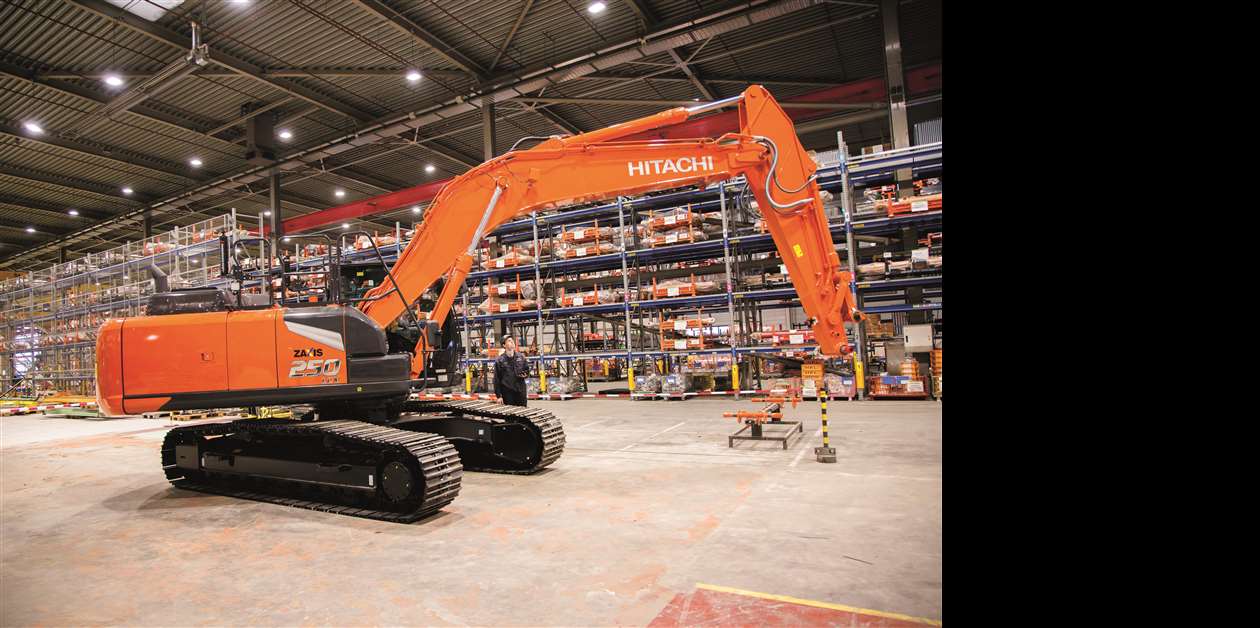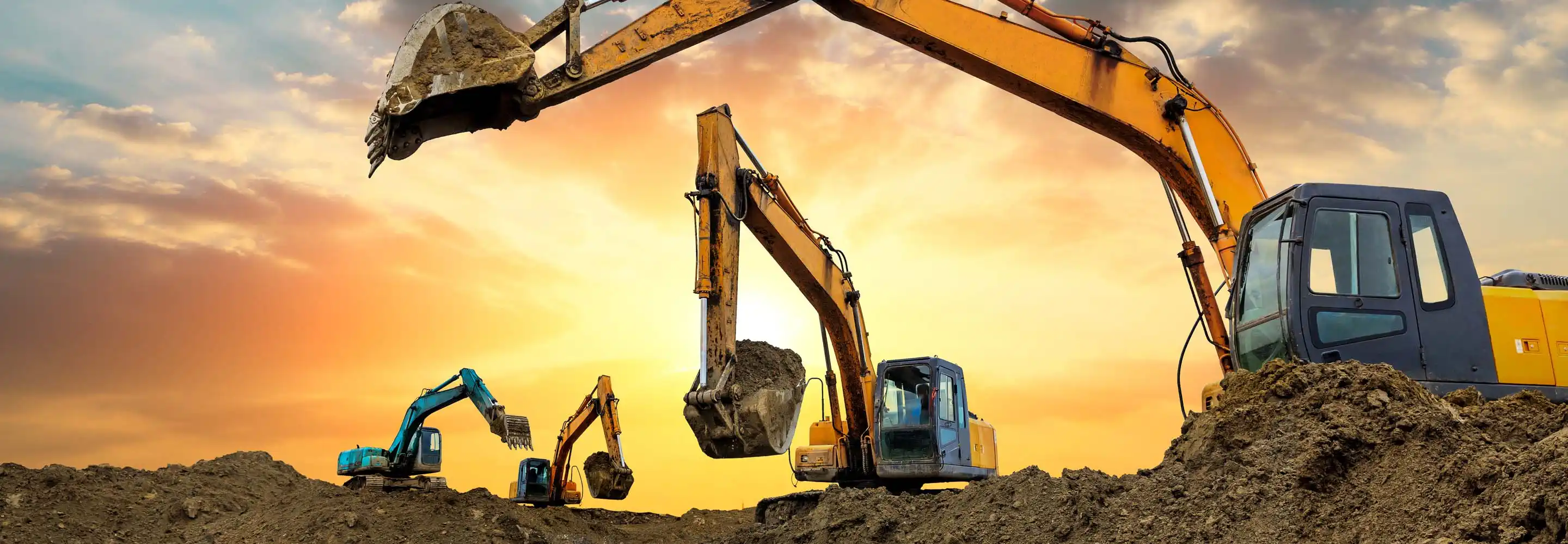Mini Excavator Rental in Tuscaloosa, AL: Compact and Powerful Equipment for Tiny Jobs
Mini Excavator Rental in Tuscaloosa, AL: Compact and Powerful Equipment for Tiny Jobs
Blog Article
Checking Out the Financial Benefits of Leasing Construction Devices Compared to Having It Long-Term
The decision between renting out and owning building and construction devices is critical for financial monitoring in the market. Renting deals instant cost savings and functional flexibility, allowing companies to assign sources a lot more successfully. In comparison, possession features substantial long-term financial dedications, consisting of upkeep and devaluation. As professionals weigh these options, the influence on money flow, project timelines, and technology gain access to ends up being progressively substantial. Recognizing these subtleties is important, particularly when considering exactly how they straighten with specific task demands and economic methods. What elements should be prioritized to ensure optimal decision-making in this complex landscape?

Expense Comparison: Renting Vs. Possessing
When reviewing the monetary ramifications of leasing versus owning building devices, an extensive expense comparison is important for making informed decisions. The choice in between having and renting out can dramatically affect a company's profits, and understanding the linked expenses is crucial.
Renting building and construction equipment commonly involves reduced upfront expenses, allowing services to allocate funding to various other operational demands. Rental expenses can gather over time, potentially going beyond the expense of possession if equipment is required for an extended period.
Alternatively, owning building and construction equipment needs a significant first investment, together with continuous prices such as funding, depreciation, and insurance. While ownership can result in long-term cost savings, it likewise locks up capital and may not provide the very same degree of versatility as renting. Furthermore, owning equipment demands a dedication to its application, which might not always align with task needs.
Inevitably, the choice to rent or own must be based upon an extensive analysis of particular project demands, economic capability, and long-lasting calculated objectives.

Upkeep Expenditures and Duties
The choice in between renting and possessing building and construction devices not only involves financial factors to consider however likewise encompasses ongoing upkeep costs and responsibilities. Owning tools needs a considerable commitment to its maintenance, which consists of routine inspections, fixings, and possible upgrades. These obligations can swiftly build up, resulting in unexpected prices that can stress a budget plan.
In contrast, when renting tools, upkeep is usually the responsibility of the rental company. This setup permits service providers to stay clear of the monetary concern associated with damage, in addition to the logistical difficulties of scheduling fixings. Rental contracts typically include provisions for upkeep, indicating that professionals can concentrate on completing projects instead than worrying concerning equipment problem.
Moreover, the diverse range of devices available for lease enables business to choose the most recent models with innovative technology, which can improve performance and productivity - scissor lift rental in Tuscaloosa, AL. By choosing for services, companies can prevent the lasting liability of devices depreciation and the connected upkeep headaches. Eventually, evaluating maintenance expenditures and responsibilities is critical for making a notified choice about whether to own or lease building and construction equipment, dramatically affecting overall project expenses and operational effectiveness

Devaluation Influence On Possession

A significant factor to think about in the choice to possess building and construction equipment is the impact of depreciation on general ownership expenses. Devaluation stands for the decrease in worth of the tools with time, affected by factors such as usage, wear and tear, and developments in innovation. As devices ages, its market price reduces, which can substantially influence the proprietor's economic placement when it comes time to trade the tools or market.
For building companies, this devaluation can equate to considerable losses if the equipment is not made use of to its greatest capacity or if it lapses. Proprietors have to account for depreciation in their financial forecasts, which can bring about higher overall costs contrasted to renting. Additionally, the tax effects of depreciation can be complex; click here for info while it might offer some tax advantages, these are frequently countered by the reality of lowered resale value.
Inevitably, the burden of devaluation emphasizes the value of understanding the long-lasting economic commitment associated with owning building equipment. Business have to thoroughly examine how typically they will certainly use the devices and the possible financial effect of devaluation to make an enlightened decision regarding possession versus renting out.
Financial Versatility of Renting
Leasing building and construction tools provides considerable economic flexibility, enabling companies to designate resources extra efficiently. This versatility is specifically important in an industry characterized by changing task demands and varying workloads. By deciding to rent, companies can stay clear of the significant capital outlay required for acquiring tools, preserving capital for other functional needs.
Furthermore, leasing tools enables companies to tailor their devices options to certain project requirements without the long-term commitment connected with ownership. This implies that services can quickly scale their tools supply up or down based upon current and awaited job needs. As a result, this flexibility decreases the danger of over-investment in machinery that may end up being underutilized or obsolete over time.
Another financial benefit of renting out is the capacity for tax benefits. Rental payments are often considered overhead, enabling instant tax obligation reductions, unlike depreciation on owned and operated equipment, which is spread out over a number of years. scissor lift rental in Tuscaloosa, AL. This immediate expenditure recognition can further boost a company's cash money setting
Long-Term Project Factors To Consider
When assessing the long-lasting requirements of a building and construction company, the choice between owning and leasing tools becomes more complex. For jobs with prolonged timelines, buying devices might appear useful due to the possibility for reduced total news prices.
The building and construction sector is advancing swiftly, with brand-new devices offering enhanced efficiency and safety and security functions. This versatility is particularly beneficial for organizations that take care of varied projects calling for different types of tools.
Moreover, monetary stability plays a critical duty. Having equipment usually involves significant capital expense and devaluation worries, while leasing allows for even more foreseeable budgeting and capital. Inevitably, the choice in between possessing and leasing needs to be lined up with the strategic purposes of the building and construction service, considering both anticipated and existing project needs.
Conclusion
In verdict, renting out construction equipment provides considerable monetary advantages over long-lasting ownership. Eventually, the choice to rent out rather than own aligns with the dynamic nature of construction projects, allowing for adaptability and access to the newest devices without the economic worries linked with possession.
As tools ages, its market worth lessens, which can significantly affect the proprietor's economic position when it comes time to market or trade the tools.
Leasing building devices provides significant economic adaptability, permitting firms to designate resources much more efficiently.Furthermore, leasing equipment makes it possible for business to tailor their equipment selections to certain project needs without the long-lasting commitment linked with ownership.In conclusion, renting out building tools uses substantial economic advantages over why not look here lasting possession. Ultimately, the choice to rent instead than own aligns with the vibrant nature of construction tasks, allowing for flexibility and access to the most recent devices without the financial problems associated with ownership.
Report this page